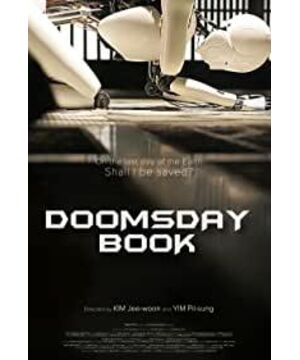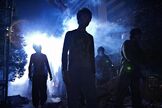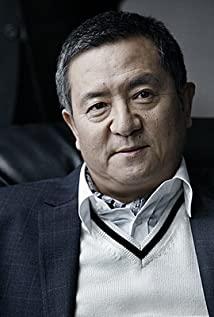But in fact, the Buddha-nature of the robot comes from the creator. The robot itself said that it has been affected by consciousness just like a human being. In the Buddhist hall, it asked itself what it is to a Buddha.
It can only be said that this robot has produced human consciousness and become a human being, and because it is a robot, it has no desires or desires, and can better understand the true meaning of Buddhism. I was confused by the fact that the robot became a Buddha, so I asked the male protagonist to confirm.
At the end of the film, the male protagonist shows his robotic arm. I personally tend to say that the male protagonist is a robot, so he was so excited when he saw the robot who became a Buddha.
The orange-haired woman asked the male protagonist, is there really no (chip)? The male protagonist just introduced the parts store to her, and at that time he naturally knew that he had a chip from Meimei on his arm.
In the end, the male protagonist gave the out-of-print chip of his arm to Meimei, which represented the dedication he inherited from the robot. (Judging from the fact that the chip can be installed on the arm and on Meimei, who can only do simple movements, the role of the chip should be related to sports. The actor gave the chip to Meimei, and he became disabled.) The
actor's body is a robot, Consciously, it is the same as that of human beings, and the last act of devotion coincides with the story of Buddha cutting flesh to feed eagles. The last scene, man, robot, Buddha, and the Trinity, draws a perfect ending for the film.
View more about Doomsday Book reviews











